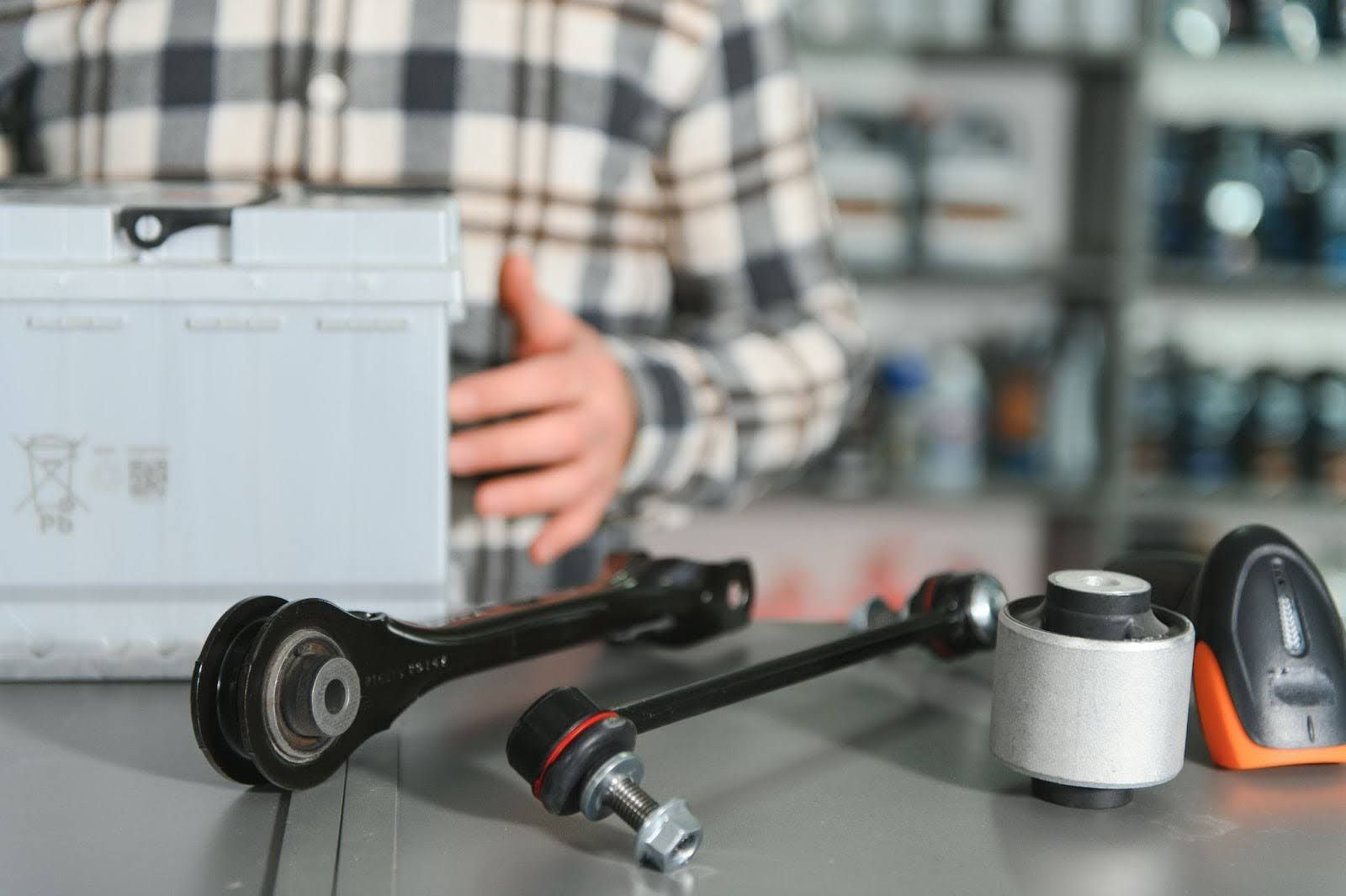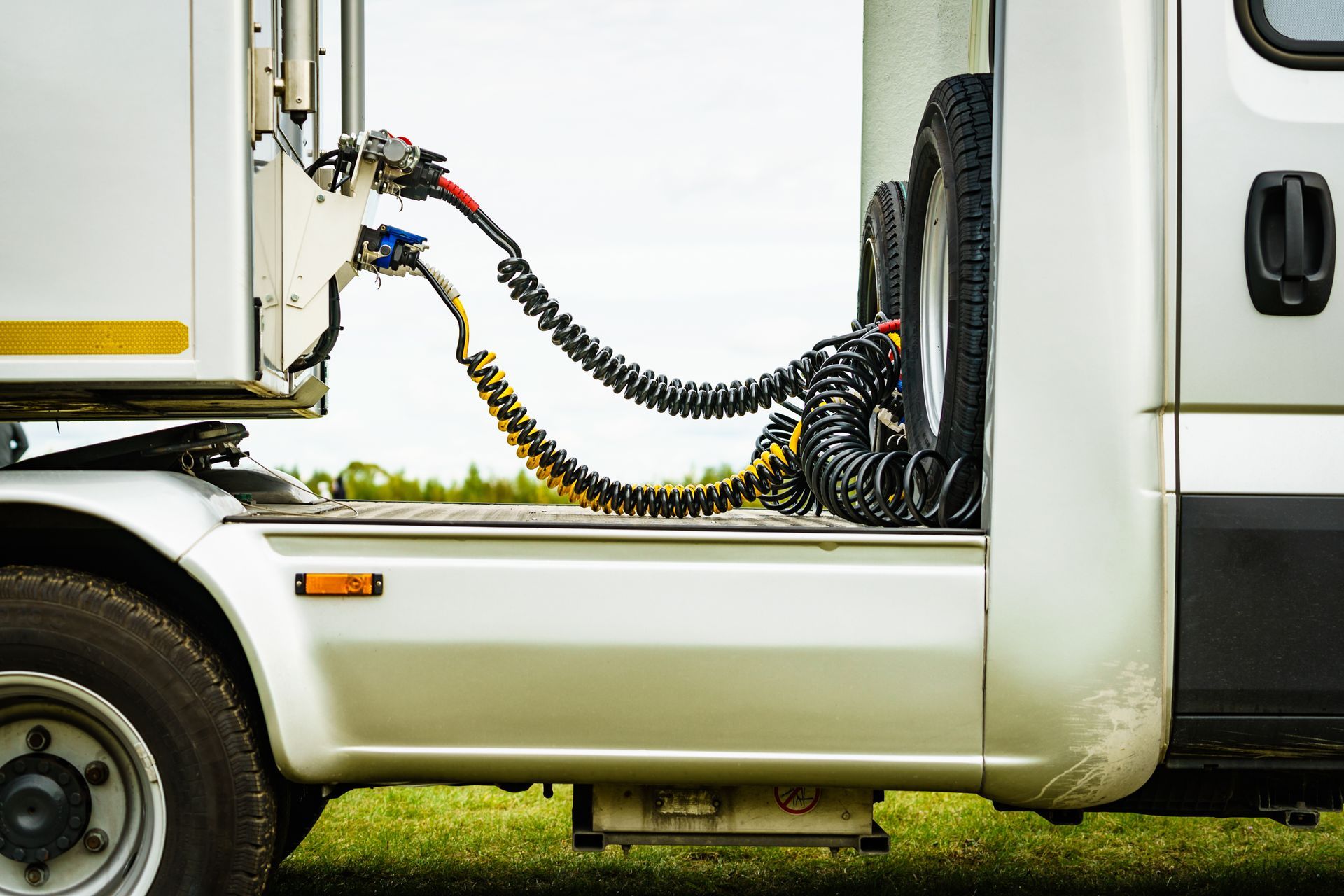Maximizing Efficiency: The Benefits of Regular Air Brake Maintenance
Maintaining the efficiency and safety of trucks and trailers is a top priority for fleet operators and individual drivers alike. One of the key components that ensures these vehicles perform safely is the air brake system. Regular maintenance of air brakes is not just a matter of routine care; it is a critical practice that significantly impacts the safety, performance, and cost-effectiveness of operating heavy vehicles. Beyond improving safety, regular maintenance helps to identify potential issues early, preventing them from becoming costly or dangerous problems. Proper care also enhances vehicle longevity, ensuring that trucks remain reliable over time.
Importance of Regular Maintenance
Regular air brake maintenance plays a vital role in
ensuring that trucks and trailers operate safely on the road. The air brake system is responsible for bringing heavy vehicles to a stop efficiently and reliably. When these systems are well-maintained, they reduce the risk of accidents caused by brake failure or increased stopping distances. Routine checks ensure that wear and tear are addressed before they escalate into significant issues. Effective brake maintenance also helps in avoiding expensive repairs that can arise from neglected systems, ensuring that vehicles remain in optimal condition and operational downtime is minimized. Maintenance can improve fuel efficiency, as a well-maintained braking system reduces overall strain on the vehicle.
Risks of Neglecting Air Brake Maintenance
Failing to maintain air brakes can lead to severe consequences. One major risk is the increase in stopping distances, which can result in collisions and accidents. In extreme cases, complete brake failure may occur, leading to potentially catastrophic outcomes. Such failures can also cause harm to drivers, passengers, and other road users, amplifying the stakes of neglect. Operators who do not prioritize brake maintenance may face significant financial burdens due to costly repairs and lost productivity. Legal repercussions and liabilities are also possible for fleet operators who fail to comply with maintenance standards, emphasizing the need for regular checks and upkeep. Neglect can also tarnish an operator's reputation, potentially leading to loss of contracts or business opportunities.
Identifying Signs of Wear and Tear
Recognizing the early signs of wear and tear in air brakes is crucial for timely intervention. Common indicators that maintenance is needed include unusual noises when braking, a noticeable reduction in braking power, and the presence of air leaks. Drivers should also pay attention to dashboard warnings or fluctuations in air pressure gauges, which often indicate underlying issues. Regular inspections can help identify these problems before they escalate, allowing for timely repairs. Environmental conditions, such as weather and road surfaces, can accelerate brake wear, making it important for operators to remain vigilant and conduct frequent checks. Consistently monitoring these signs can prevent small issues from snowballing into larger, more expensive problems.
Practical Tips for Extending Brake Lifespan
To prolong the lifespan of brake components, operators should adhere to several practical maintenance strategies. Regular lubrication and the timely replacement of worn parts are essential practices. Maintaining proper air pressure in the system is another key factor, as under- or over-pressurization can lead to premature wear. Utilizing high-quality parts, whether they are original equipment manufacturer (OEM) or aftermarket,
can significantly enhance the durability of brake systems. Employing advanced technology such as brake monitoring systems can provide real-time data on brake health, helping operators address issues proactively. Regular training for drivers on optimal braking practices can also contribute to reducing unnecessary wear and tear.
Adhering to Maintenance Schedules
Following recommended maintenance schedules is crucial for optimal brake performance. Manufacturers provide specific guidelines on how often brakes should be inspected and serviced. Adhering to these schedules not only extends the lifespan of brake components but also ensures compliance with safety regulations. Routine maintenance should include checking air pressure levels, brake pads, and rotors. While operators can perform basic checks, professional inspections are recommended to ensure comprehensive care and to address any issues that may not be immediately apparent. Establishing a digital log of maintenance activities can also help operators track schedules more efficiently and stay proactive in their upkeep efforts.
Cultural and Geographical Influences on Maintenance
Cultural and geographical factors can significantly influence air brake maintenance needs. In regions like Las Vegas, the desert climate poses unique challenges, such as increased wear due to high temperatures. These conditions necessitate more frequent maintenance to ensure brake systems remain effective. Mountainous or hilly terrain in other regions may also demand enhanced attention to braking systems, as frequent use can accelerate wear. Cultural attitudes towards vehicle maintenance can also impact how diligently operators adhere to recommended schedules. Local regulations and industry standards further shape maintenance expectations, ensuring that operators maintain compliance and safety. Understanding these factors allows operators to tailor maintenance practices to their specific circumstances.
Role of Local Parts Retailers
Local auto parts retailers, such as Legacy Truck & Trailer Parts, play an essential role in supporting maintenance efforts. They provide high-quality parts and offer expertise to truck operators in the region, helping them maintain their vehicles' braking systems effectively. These retailers often stock a wide variety of parts, ensuring that operators can find the right components for their specific vehicles. By partnering with reliable parts suppliers, operators can ensure they have access to the necessary components and guidance to keep their air brakes in top condition. Retailers can also offer advice on new technologies or upgrades,
helping operators stay ahead in maintaining their fleets efficiently.
Regular air brake maintenance is an indispensable practice for ensuring the safety and efficiency of trucks and trailers. By staying alert to signs of wear and tear, following maintenance schedules, and considering environmental and cultural factors, operators can maintain their braking systems effectively. This proactive approach not only prevents accidents and reduces repair costs but also enhances vehicle performance and fuel efficiency, contributing to the overall success of fleet operations.
For more information on maintaining your truck or trailer's air brake system, or to find quality parts and expert advice,
reach out to Legacy Truck & Trailer Parts today. Our team is dedicated to helping you keep your vehicles safe and efficient on the road.











